CORPORATE ACTION: Coca-Cola
Coca-Cola Transitions To 100% Recycled 500ml Plastic Bottles
 Coca-Cola Great Britain said it plans to start using 100% recycled plastic in all easy-to-carry bottles for the company’s entire range. The company will make all plastic bottles of 500ml or less in the UK with 100% recycled plastic and they will remain fully recyclable. The first 100% recycled 500ml bottles will be launched in September 2021.
Coca-Cola Great Britain said it plans to start using 100% recycled plastic in all easy-to-carry bottles for the company’s entire range. The company will make all plastic bottles of 500ml or less in the UK with 100% recycled plastic and they will remain fully recyclable. The first 100% recycled 500ml bottles will be launched in September 2021.[Image Credit: © Coca-Cola Great Britain]
CORPORATE ACTION: Colgate
Softsoap Launches Foaming Hand Soap Tablets With Refillable Bottles
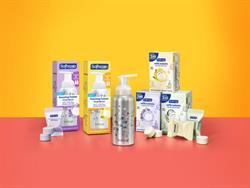 Colgate-Palmolive’s liquid hand soap brand, Softsoap, launched the Softsoap Foaming Tablets combined with a refillable and recyclable aluminum bottle. The product comes with biodegradable and eco-friendly cleansing ingredients in a convenient tablet form. The product is designed to help eliminate the mess associated with refilling a hand soap bottle while providing the same rich foam lather. The product kit uses 71% less plastic than a conventional foaming plastic soap bottle and comes in various scents, including Sparkling Lavender, Lemon Fizz, and Fresh Coconut.[Image Credit: © Colgate-Palmolive]
Colgate-Palmolive’s liquid hand soap brand, Softsoap, launched the Softsoap Foaming Tablets combined with a refillable and recyclable aluminum bottle. The product comes with biodegradable and eco-friendly cleansing ingredients in a convenient tablet form. The product is designed to help eliminate the mess associated with refilling a hand soap bottle while providing the same rich foam lather. The product kit uses 71% less plastic than a conventional foaming plastic soap bottle and comes in various scents, including Sparkling Lavender, Lemon Fizz, and Fresh Coconut.[Image Credit: © Colgate-Palmolive]
CORPORATE ACTION: Kraft Heinz
Heinz Announces 100% Recyclable Cap For Squeezy Ketchup Bottles
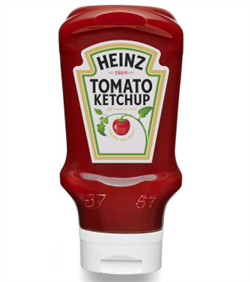
Heinz Tomato Ketchup said it is introducing a 100% recyclable cap for its squeezable bottles. The company has invested eight years of research and development, more than 185,000 hours, and $1.2 million to create the cap. The brand also said it plans to launch the cap in 2022.[Image Credit: © Kraft Heinz ]
CORPORATE ACTION: Procter & Gamble
P&G Unveils First Paper Bottle For Lenor Products
.jpg&width=250&height=250)
Procter & Gamble has introduced the company’s first paper bottle for its Lenor brand of home care products, co-developed with Paboco. &G also announced plans for a trial introduction of the paper bottle in Western Europe in 2022. Results of the pilot will help the company determine the best strategies for scaling up paper packaging and incorporating the technology across its product portfolio.[Image Credit: © Procter & Gamble]
CORPORATE ACTION: Unilever
Unilever, Mondi Jointly Develops Aluminum-Free Paper-Based Packaging
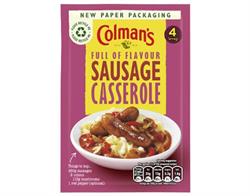
Unilever collaborated with packaging company Mondi to develop a high-barrier paper-based packaging material for the consumer goods company’s dry Meal Maker and Sauces range of food products. The packaging material comes with reduced plastic content and uses no aluminum. The packaging is recyclable under the UK’s current paper waste recycling scheme.[Image Credit: © Mondi ]
Hindustan Unilever Launches Vending-Refilling Machine In India
.jpg&width=250&height=188)
Hindustan Unilever Limited has launched its first Smart Fill vending and refilling machine in India. The in-store vending system is designed to allow consumers to reuse their plastic bottles by refilling with home care products from HUL’s brands, including Surf Excel, Comfort, and Vim. Consumers can access the machine by using their empty bottles or buying a Smart Fill bottle from the store.[Image Credit: © Unilever plc]
Unilever Plans To Use Recyclable Tube Packaging For Toothpastes By 2025
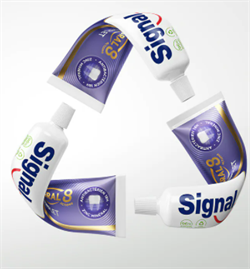
Unilever announced plans to use recyclable tubes for its Close Up, Pepsodent, and Signal brands of toothpastes by 2025. The company expects to recycle more than 12,000 tons of plastic. Unilever plans to start with the Signal brand in France and will make tubes with high-density polyethylene (HDPE) plastic.[Image Credit: © Unilever plc]
CORPORATE ACTION: Other
MOB Beauty Launches Mail-Back Program For Hard-To-Recycle Cosmetics Packaging

Makeup brand MOB Beauty has announced the launch of a packaging mail-back program for Pact, a non-profit collective launched on Earth Day 2021 to help reduce beauty industry’s packaging waste. The Pact Mail Back Program is aimed at consumers with no access to the program’s recycling bins for beauty packaging items that are difficult to recycle. Consumers who want to use the mail-back program need to save 5-10 empty and cleaned hard-to-recycle packaging items, then create a mailing label by accessing the website pactcollective.org/mob.[Image Credit: © MOB BEAUTY]
The Body Shop Launches In-Store Refill Services In Singapore
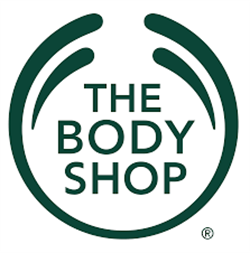
Beauty retailer The Body Shop has started offering in-store product refill services in Singapore. The Natura-owned company has begun introducing in-store refill services across 500 of its stores worldwide, with plans to add 300 stores more in 2022. The Body Shop said it believes refill services will be widely accepted by consumers in Singapore.[Image Credit: © The Body Shop]
CAMPAIGNS, COMMITMENTS & NGOs
Ellen MacArthur Foundation’s White Paper Shows Circular Economy Reduces Investment Risk
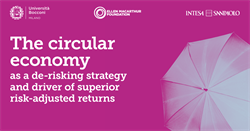 The Ellen MacArthur Foundation, in partnership with Bocconi University and Intesa Sanpaolo, published a white paper highlighting evidence of how circular economy strategies can reduce investment risks and push superior risk-adjusted returns for investors and financial institutions. The paper is based on the results of Bocconi University’s examination of over 200 publicly-listed companies across 14 industries in Europe. It shows that companies with higher circular economy adoption have lower risks of defaulting on debt and higher risk-adjusted returns on their stocks.[Image Credit: © Ellen MacArthur Foundation]
The Ellen MacArthur Foundation, in partnership with Bocconi University and Intesa Sanpaolo, published a white paper highlighting evidence of how circular economy strategies can reduce investment risks and push superior risk-adjusted returns for investors and financial institutions. The paper is based on the results of Bocconi University’s examination of over 200 publicly-listed companies across 14 industries in Europe. It shows that companies with higher circular economy adoption have lower risks of defaulting on debt and higher risk-adjusted returns on their stocks.[Image Credit: © Ellen MacArthur Foundation]
Digital Technologies Allow Manufacturers And Recyclers To Speed Up Adoption Of Circular Economy
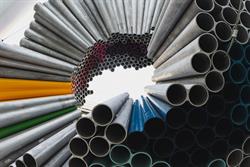 Companies are using digital technologies to achieve the circular economy for plastic packaging. Manufacturers, such as Procter & Gamble, are using digital watermarks that can be applied to the surface of consumer goods packaging. Such digital codes allow the integration of information that can identify a product and can gather, store, share and examine data during the product’s lifecycle. These technologies will let recyclers determine the quality of the plastic waste they collect.[Image Credit: © Christophe Dion]
Companies are using digital technologies to achieve the circular economy for plastic packaging. Manufacturers, such as Procter & Gamble, are using digital watermarks that can be applied to the surface of consumer goods packaging. Such digital codes allow the integration of information that can identify a product and can gather, store, share and examine data during the product’s lifecycle. These technologies will let recyclers determine the quality of the plastic waste they collect.[Image Credit: © Christophe Dion]
British Beauty Council’s Kendall Calls On Beauty Industry To Deal With Plastics Challenge
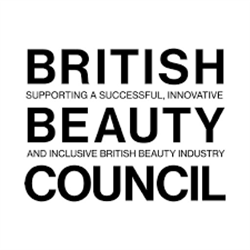
British Beauty Council CEO Millie Kendall called on the beauty industry to address the massive plastic pollution challenge by giving up consumerism and investing in environment-friendly packaging technology and manufacturing. Kendall also said the cosmetics industry needs to “stop confusing consumers” and to invest in sustainable infrastructure. During her speech at the Plastic Free Beauty webinar hosted by her organization, Kendall highlighted the need for “immediate, collective action” by the beauty industry.[Image Credit: © British Beauty Council]
Greenpeace Calls For End Of UK’s Plastic Exports, Dumps 625kgs Of Plastic Waste At Downing Street
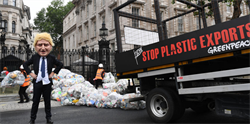 Activists from the environmental group Greenpeace dumped 625kgs of plastic waste at Downing Street to urge the UK government to stop exporting plastic waste. The group’s action came after Turkey’s government had announced a plan to allow imports of most types of plastic. In 2020, UK exported 688,000 tons of plastic packaging waste.[Image Credit: © Greenpeace ]
Activists from the environmental group Greenpeace dumped 625kgs of plastic waste at Downing Street to urge the UK government to stop exporting plastic waste. The group’s action came after Turkey’s government had announced a plan to allow imports of most types of plastic. In 2020, UK exported 688,000 tons of plastic packaging waste.[Image Credit: © Greenpeace ]
CGF’s Anti-Plastic Waste Alliance Releases Design Rules For Sustainable Plastic Packaging
.jpg&width=250&height=92) The Consumer Goods Forum’s Coalition of Action on Plastic Waste published the last seven of the organization’s “Golden Design Rules” for designing sustainable plastic packaging. The publication follows the first two series of rules launched in December 2020. The group is following the Ellen MacArthur Foundation for a New Plastics Economy vision and is committed to working for a circular economy. Its four main priorities are packaging redesign, developing a framework for optimal Extended Producer Responsibility programs, encouraging recycling innovation, and piloting new programs in advanced and transitional markets in order to ramp up recycling rates.[Image Credit: © The Consumer Goods Forum]
The Consumer Goods Forum’s Coalition of Action on Plastic Waste published the last seven of the organization’s “Golden Design Rules” for designing sustainable plastic packaging. The publication follows the first two series of rules launched in December 2020. The group is following the Ellen MacArthur Foundation for a New Plastics Economy vision and is committed to working for a circular economy. Its four main priorities are packaging redesign, developing a framework for optimal Extended Producer Responsibility programs, encouraging recycling innovation, and piloting new programs in advanced and transitional markets in order to ramp up recycling rates.[Image Credit: © The Consumer Goods Forum]
IPEN Report Claims Recycling Alone Cannot End Plastic Pollution
.png&width=250&height=125) The International Pollutants Elimination Network (IPEN) has released a report called “Plastic Waste Management Hazards,” which examines whether existing investments in mechanical and chemical plastic recycling can support a circular plastic economy. The report looked at the economic viability and social costs of activities related to plastic recycling, and subjected recovery activities, such as adding waste into construction materials, burning for energy, and managing toxicity, to the same analysis. The organization discovered that current recycling rates cannot offer a solution to plastic pollution if plastic production is growing at exponential levels.[Image Credit: © International Pollutants Elimination Network (IPEN) ]
The International Pollutants Elimination Network (IPEN) has released a report called “Plastic Waste Management Hazards,” which examines whether existing investments in mechanical and chemical plastic recycling can support a circular plastic economy. The report looked at the economic viability and social costs of activities related to plastic recycling, and subjected recovery activities, such as adding waste into construction materials, burning for energy, and managing toxicity, to the same analysis. The organization discovered that current recycling rates cannot offer a solution to plastic pollution if plastic production is growing at exponential levels.[Image Credit: © International Pollutants Elimination Network (IPEN) ]
International Community Needs Legally Binding Agreement To Deal With Plastic Pollution
 There is a need for an international agreement that is legally binding and focuses on the “entire life cycle of plastics”, from the mining of raw materials to long-lasting plastic pollution. Many governments expressed their support for such an international agreement during the February 2021 meeting of the United Nations Environmental Assembly. A legally binding international agreement is the only way to deal with the magnitude and severity of global plastic pollution, as well as its “social, environmental, and economic impacts”.[Image Credit: © United Nations Environmental Assembly]
There is a need for an international agreement that is legally binding and focuses on the “entire life cycle of plastics”, from the mining of raw materials to long-lasting plastic pollution. Many governments expressed their support for such an international agreement during the February 2021 meeting of the United Nations Environmental Assembly. A legally binding international agreement is the only way to deal with the magnitude and severity of global plastic pollution, as well as its “social, environmental, and economic impacts”.[Image Credit: © United Nations Environmental Assembly]
PACKAGING REDESIGNS
2021 Sees Several Trends In Sustainable Packaging
 Several trends are emerging in the field of sustainable packaging, including the use of refillable parent packaging supporting Zero Waste initiatives; bulk dispenser refilling designed for the wholesaler-to-retailer market; and returnable or reusable packaging for liquid drinks and industrial products. Also, manufacturers are adopting antimicrobial packaging designed to help reduce product waste, and edible packaging designed for commercial applications. Other sustainable packaging trends are the use of bioplastics for biodegradable packaging and using post-consumer recycled resin.[Image Credit: © Agenlaku Indonesia]
Several trends are emerging in the field of sustainable packaging, including the use of refillable parent packaging supporting Zero Waste initiatives; bulk dispenser refilling designed for the wholesaler-to-retailer market; and returnable or reusable packaging for liquid drinks and industrial products. Also, manufacturers are adopting antimicrobial packaging designed to help reduce product waste, and edible packaging designed for commercial applications. Other sustainable packaging trends are the use of bioplastics for biodegradable packaging and using post-consumer recycled resin.[Image Credit: © Agenlaku Indonesia]
Bower Collective Works On Next-Generation Reusable Packaging System To Eliminate Plastic Waste
 Bower Collective is developing an advanced reusable packaging system with the help of Innovate UK. The online retailer of sustainable home and personal care products aims to use the proposed packaging system to help eliminate plastic packaging waste. Also, the technology will allow companies to reuse and replenish their packaging “on a large scale”. The company has raised £2.1 million in seed-stage funding and has built a community of more than 60,000 consumers, recording 30% month-on-month revenue growth.[Image Credit: © Bower Collective]
Bower Collective is developing an advanced reusable packaging system with the help of Innovate UK. The online retailer of sustainable home and personal care products aims to use the proposed packaging system to help eliminate plastic packaging waste. Also, the technology will allow companies to reuse and replenish their packaging “on a large scale”. The company has raised £2.1 million in seed-stage funding and has built a community of more than 60,000 consumers, recording 30% month-on-month revenue growth.[Image Credit: © Bower Collective]
UK’s Recycling Rate Up 1.2 Percentage Points In 2019
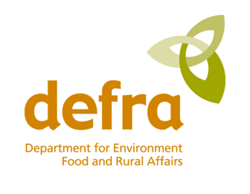
In the UK, the combined recycling rate for households rose to 46.2% in 2019 from 45.0% in 2018, according to data from the Department for Environment, Food and Rural Affairs. Also, biodegradable municipal waste that ended in landfills dropped from about 7.2 million tonnes in 2018 to some 6.6 million tonnes. Preliminary data for 2020 reveal that 67.2% of packaging waste was either recycled or recovered, the same rate as in 2019.[Image Credit: © Department for Environment, Food and Rural Affairs]
POLICY, REGULATION & LEGAL
New Zealand Reveals Plan To Ban Single-Use Plastics By 2025
 New Zealand plans to ban by 2025 single-use plastics like plates, bags, drinking straws, and some polystyrene products. The ruling Labour Party promised the ban during the last election and will implement the policy in three stages from late 2022 to July 2025. The ban is expected to remove about 2 billion single-use plastics from landfills, but excludes single-use cups, wet wipes, and some expanded polystyrene applications.[Image Credit: © New Zealand]
New Zealand plans to ban by 2025 single-use plastics like plates, bags, drinking straws, and some polystyrene products. The ruling Labour Party promised the ban during the last election and will implement the policy in three stages from late 2022 to July 2025. The ban is expected to remove about 2 billion single-use plastics from landfills, but excludes single-use cups, wet wipes, and some expanded polystyrene applications.[Image Credit: © New Zealand]
RESEARCH
Rumen Microbial Community Has Potential As Natural Decomposer Of Synthetic Polyesters
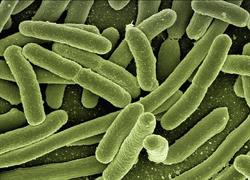 A recent study revealed that the rumen microbial community has the ability to degrade or decompose three types of synthetic polyesters: PET, PBAT, and PEF. By studying the rumen content from cattle (Bos taurus), with the possibility that the diet of ruminants may include natural plant polyesters, the researchers have quantified the solubilized molecules and performed scanning electron microscopy analysis of surface erosion. Results of the study also revealed the polyester-hydrolizing activity of rumen fluid was relatively high.[Image Credit: © geralt ]
A recent study revealed that the rumen microbial community has the ability to degrade or decompose three types of synthetic polyesters: PET, PBAT, and PEF. By studying the rumen content from cattle (Bos taurus), with the possibility that the diet of ruminants may include natural plant polyesters, the researchers have quantified the solubilized molecules and performed scanning electron microscopy analysis of surface erosion. Results of the study also revealed the polyester-hydrolizing activity of rumen fluid was relatively high.[Image Credit: © geralt ]
OTHER NEWS
Tetra Pak Executive Claims Deposit Return Schemes Can Help UK Achieve Circular Economy
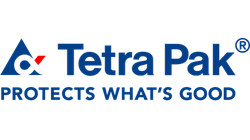 Tetra Pak North Europe managing director, Alex Henriksen, said deposit return schemes offer the UK a chance to take an important step toward achieving its goal of a “truly circular economy”. In an interview, Henriksen also said a flat fee for all types of containers is the best approach to ensuring the success of a recycling program and increasing recycling rates. He also argued against the misconception that carton packaging is difficult to recycle.[Image Credit: © Tetra Pak North Europe]
Tetra Pak North Europe managing director, Alex Henriksen, said deposit return schemes offer the UK a chance to take an important step toward achieving its goal of a “truly circular economy”. In an interview, Henriksen also said a flat fee for all types of containers is the best approach to ensuring the success of a recycling program and increasing recycling rates. He also argued against the misconception that carton packaging is difficult to recycle.[Image Credit: © Tetra Pak North Europe]
Copyright 2026 Business360, Inc.

